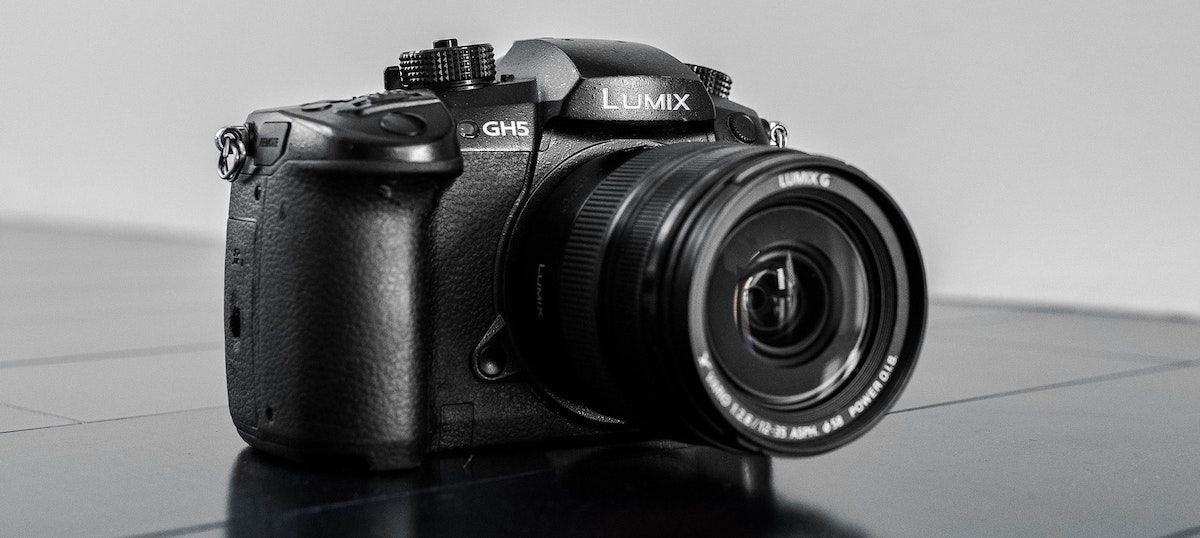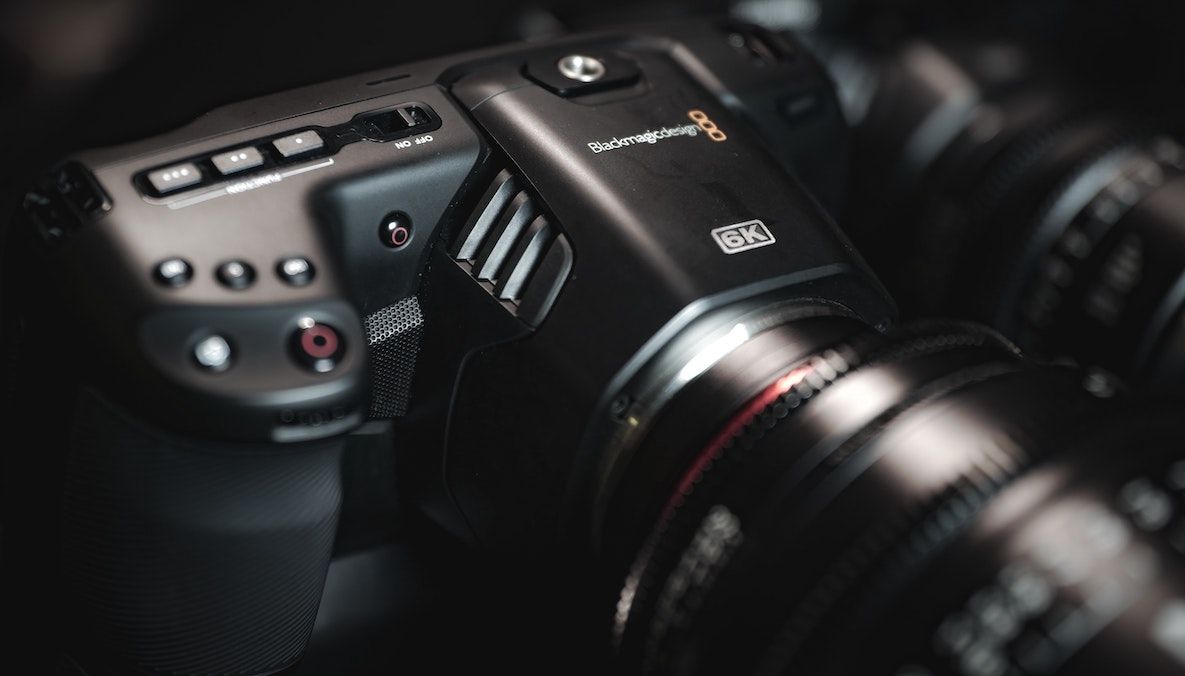Pick Your Favourite: The 15 Best Video Cameras to Choose From
Rent film gear from local filmmakers.

Rent film gear from local filmmakers.
Mirror, mirror on the wall, what is the best camera of them all?
Unless you enjoy being bombarded with results, simply googling "video camera" is not an option. We have kept it short: this simple guide will inform you of the key features and pros and cons of the best video cameras grouped in the level of experience.
Looking for more equipment for your next project? Find all the must-have camera equipment.
5 of the best video cameras for beginners
1. Sony RX100 VII
- Type: Mirrorless
- Sensor: 20.1-megapixel 1 inch CMOS
- Native ISO range: ISO 100 - 12800
- Lens: 24-200 mm F2.8-4.5 Zoom Lens
- Screen: 3.0-inch articulating screen
- Continuous shooting speed: 90.0 frames per second (fps)
- Maximum Shutter speed: 1/32000 - 30 sec
- Movies: 4K in 30p/25p/24p
Pros:
- Outstanding image quality
- Effective autofocus system
- Lightweight and portable
Cons:
- Noisy results with darker environments
- Short battery life
- Tricky to hold
2. GoPro HERO10 Black
- Type: Sports and action
- Sensor: 23 MP
- Processor: GP2
- Native ISO range: ISO 100 - 6400
- Screen: LCD touch screen (back) + LCD screen for live preview (front)
- Shutter speed: is set to Auto (the camera will adjust its speed automatically, depending on its surrounding lighting conditions)
- Movies: Up to 5,3K with 60fps
Pros:
- User-friendly
- Powerful processor
- Excellent stabilisation
- New lens cover resists water
- Faster wired transfer mode
Cons:
- Small sensor (low light performance isn't the best)
- Weak battery life
- Heat limits long-form recording
- Not the best at low-light
- Not the best budget-wise
3. Panasonic Lumix DC-S1
- Type: Mirrorless
- Sensor: 24MP full-frame CMOS sensor
- Native ISO range: ISO 100-51200
- Screen: Articulated touch screen
- Continuous shooting speed: 9.0fps
- Maximum shutter speed: 1/8000 sec
- Movies: 6K video with full-frame capture
Pros:
- Unlimited video recording time
- Built-in Wireless (Wi-fi)
- Remote control with a smartphone
- Bluetooth
Cons:
- Weak battery
- Heavy body
4. DJI Pocket 2
- Type: Sports and action
- Sensor: 1/1.7" CMOS
- Native ISO range: 100-6400
- Lens: FOV 93° f/1.8 (equivalent format: 20 mm)
- Maximum shutter speed: 8-1/8000 s
- Movies: 4K in 24/25/30/48/50/60fps
Pros:
- Super portable
- Great stabilisation
- Full manual mode (you can adjust ISO, shutter speed, etc.)
- You can charge it while using it (via USB C)
Cons:
- Can't interchange lenses
- Inferior video quality in low light.
5. Panasonic Lumix GH5 II
- Type: Mirrorless
- Sensor: 20MP Four-Thirds CMOS
- Native ISO range: ISO 200 - 25600
- Screen: 3.0" 1.84M-dot rear touchscreen
- Continuous shooting speed: 12.0fps
- Maximum shutter speed: 1/8000s
- Movies: 4k in 60 fps
Pros:
- Good video quality.
- Comfortable to handle.
- Great battery life.
- Several recording formats for video.
Cons:
- Autofocus is mediocre.
- Poor low light performance

5 of the best intermediate video cameras
1. Sony ZV-E10
- Type: Mirrorless
- Sensor: 24MP APS-C
- Native ISO range: ISO 100 - 32000
- Continuous shooting speed: 11.0 frames
- Maximum shutter speed: 1/4000 sec
- Movies: 3840x1920
Pros:
- Great battery life
- Good autofocus
- You can switch lenses
- Selfie friendly
Cons:
- No image stabilisation
- No inbuilt flash
2. Sony A7C
- Type: Mirrorless
- Sensor: 24MP BSI CMOS full-frame
- Native ISO range: ISO 100-51200
- Screen: Fully articulating 921k-dot touchscreen
- Continuous shooting speed: 10 fps
- Maximum shutter speed: 1/8000 sec
- Movies: 4K 30p video, Full HD up to 120p
Pros:
- Great battery life
- Exceptional high ISO execution.
- Good microphone
- Amazing image stabilisation
Cons:
- Small finder
- Slow response to adjustments in camera settings
- No built-in flash.
- Complicated menu system
3. Canon EOS C70
- Type: Mirrorless
- Sensor: 35mm Dual Gain Output (DGO)
- Native ISO range: ISO160-25600
- Screen: 3.5 inch LCD Touch Panel
- Maximum shutter speed: 1/2000
- Movies: 4K recording up to 120FPS
Pros:
- Image quality
- Fantastic ergonomics
- Good touch controls
- Precise autofocus
Cons:
- Lacks RAW recording
- Unconventional mount points
- No Wi-fi
- No navigation by touch
- Some SD card issues
4. Fujifilm X-T4
- Type: Mirrorless
- Sensor: APS-C (23.5 x 15.6 mm)
- Native ISO range: 160-12800
- Resolution: 26.1MP
- Lens: X mount
- Monitor: 1.62m-dot articulating screen
- Maximum continuous shooting speed: 15fps
- Movies: 4K at 60 fps
Pros:
- Simple manual controls
- Variety of available lenses
- AF performance
- Image and video quality
- Film simulations
- Improved battery life
Cons:
- No direct headphone output (adapter required)
- Can't navigate the main menu using the touch screen.
5. Nikon Z6 II
- Type: Mirrorless
- Sensor: 24.5MP
- Native ISO range: 100-51200
- Monitor: 2.1m-dot tilting screen
- Maximum shutter speed: 1/8000 sec
- Maximum continuous shooting speed: 14fps
- Movies: 4K at up to 30p
Pros:
- Image quality
- Superb built quality
Cons:
- The screen only tilts (not fully articulated)
- No internal 10-bit recording
5 of the best video camera for professionals
1. Canon EOS R5
- Type: Mirrorless
- Sensor: 45MP CMOS
- Native ISO range: 100-51200
- Monitor: 3.2″ Fully Articulated Screen
- Maximum shutter speed: 1/8000 sec
- Maximum continuous shooting speed: 12.0fps
- Movies: 8K - 8192 x 4320 video
Pros:
- Excelent image quality and autofocus
- Fantastic set of video features
- Great ergonomics
Cons:
- Expensive
- 8K video will require lots of storage capacity
- Overheating
2. Panasonic Lumix S5
- Type: Mirrorless
- Sensor: 35mm full-frame (35.6mm x 23.8mm) CMOS sensor
- Native ISO range: ISO 100-51200
- Monitor: 3" 1.84M-dot fully articulating touchscreen
- Maximum shutter speed: 1/8000 sec
- Maximum continuous shooting speed: 7 fps
- Movies: 4K at 60p
Pros:
- Fantastic image quality
- Impressive video capabilities
- Small and lightweight
- Good handling and controls
Cons:
- Poor autofocus
3. Sony A1
- Type: Mirrorless
- Sensor: 35mm CMOS
- Native ISO range: 100-32000
- Monitor: 3'' Tilting
- Maximum shutter speed: 1/32000 sec
- Maximum continuous shooting speed: 30.0 fps
- Movies: 7680 x 4320 at 30p
Pros:
- Fantastic image quality
- Superior ergonomics
- Good battery life
- Great autofocus
Cons:
- The screen is not fully articulating
- Irregular multi Shot mode
- Autofocus is affected in low light conditions
- Price
4. Sony A7S III
- Type: Mirrorless
- Sensor Size: Full Frame
- Base ISO: 50
- Resolution: 12.1MP
- Lens: Sony E
- Monitor: 1.44m-dot articulating screen
- Maximum continuous shooting speed: 10fps
- Movies: 4K at 120fps
Pros:
- Excellent low-light execution
- Responsive autofocus
- Large battery capacity
- Doesn't overheat
Cons:
- No 6K or 8K
- Poor resolution for stills

5. Blackmagic Pocket Cinema 6K Pro
- Type: Mirrorless
- Sensor Size: 23.10mm x 12.99mm (Super 35)
- Dual native ISO: 400 and 3200
- Monitor: 5" touchscreen
- Maximum continuous shooting speed: up to 60 fps in 6K 2.4:1, 120 fps in 2.8K 17:9 and 1080HD
- Movies: 6144 x 3456 (6K) up to 50 fps
Pros:
- Great quality both in light and dark
- Allows a wide variety of lenses
Cons
- Price
Closing thoughts
Hopefully, you now have your eye on one or two options. Why not try them out before committing? Rent or subscribe to your next camera now.
Rent Camera Gear: Access Pro Equipment
qqHXJy6AWlc
Camera Hire: Take Your Production to The Next Level
71PttfqWPXk
Camera Rental: Save Money with Wedio
5sHshmF1n_Y
About the instructors
Best Video Camera FAQ
Which camera is best for professional videography?
Blackmagic Pocket Cinema 6K Pro























